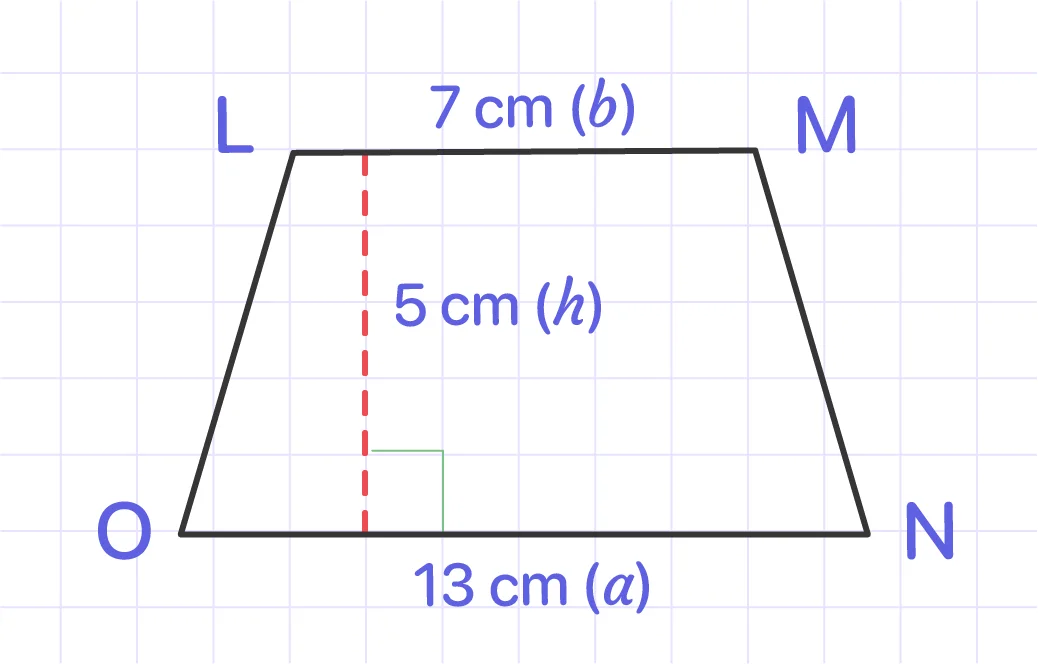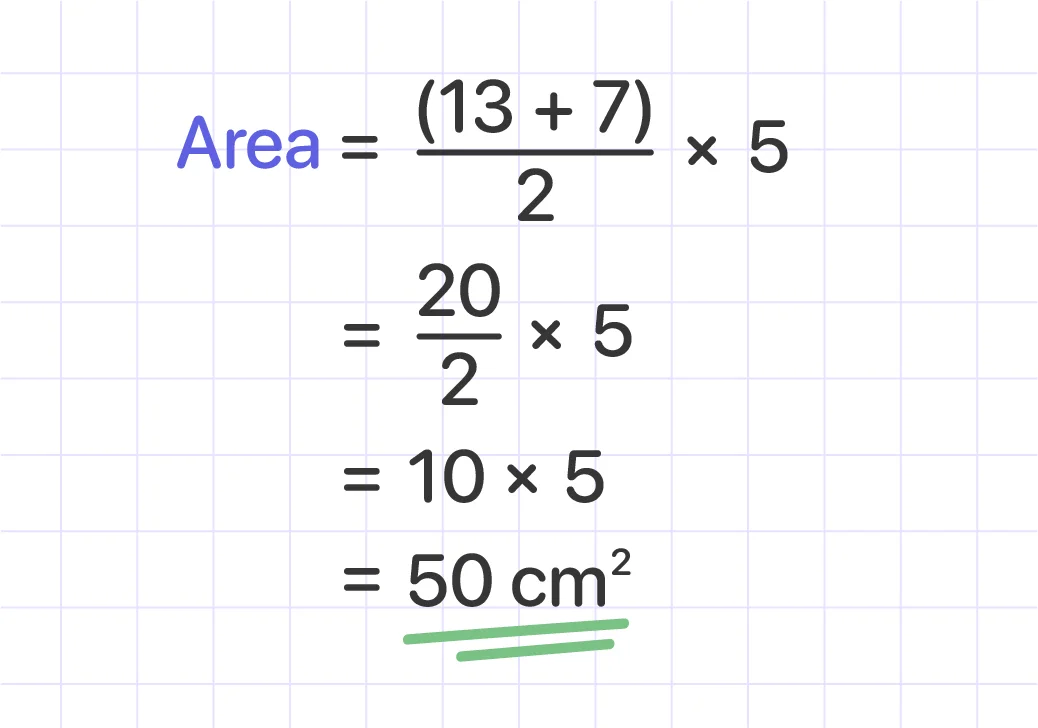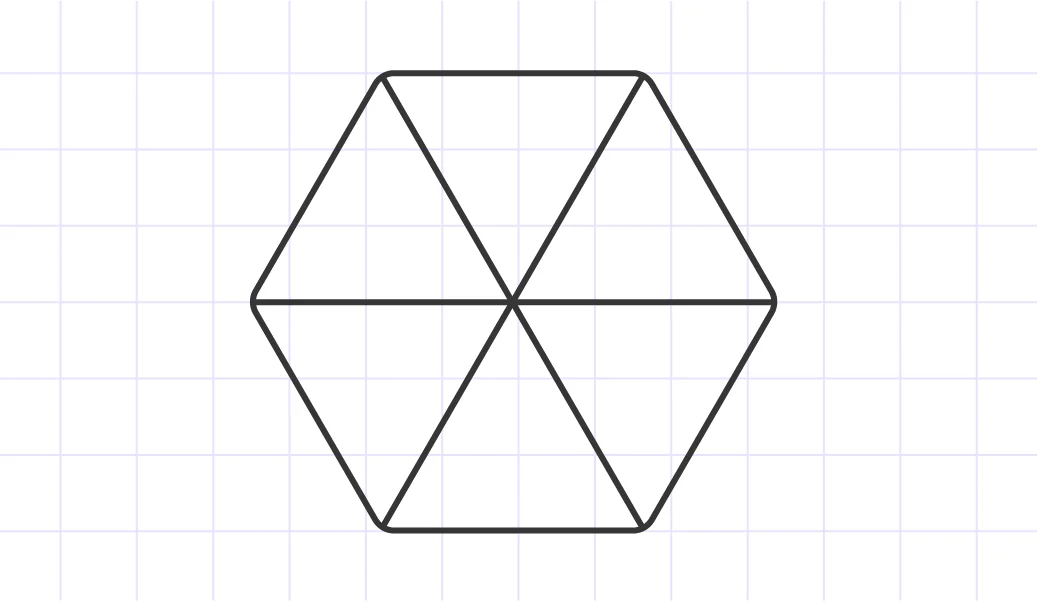Solving polygons
A polygon is a closed two-dimensional shape with three or more straight lines. At least three sides are required for a polygon.
Formulas for a regular polygon:
The sum of interior angles of a polygon is 180°(n-2);
The number of diagonals of an “n-sided” polygon = [n(n-3)]/2;
The measure of each interior angle of a regular n-sided polygon [(n-2)180°]/n;
The measure of exterior angles of a regular n-sided polygon = 360°/n;
Area of regular polygon = (number of sides x apothem x length of one side)/2, where apothem length is given as $\frac{I}{2tan(\frac{180}{n})}$ and where l is the side length of the regular polygon and n is the number of sides.
Example 1:
Trapezoid LMNO has parallel bases LM and NO. Line segment LM is 7 cm long, and line segment NO is 13 cm long. WE will label side NO as a and shorter side LM as b. The height (h) is 5 cm. Find the area of the trapezoid.

Solution:
The trapezoid area formula is $\frac{a + b}{2} \times h$. So,

Answer: The area of LMNO is 50 cm^2.
Example 2:
How many degrees are there at each angle of a regular hexagon?
a)60°
b)90°
c)108°
d)120°
e)144°
Solution:
A regular hexagon may be broken up into six equilateral triangles.

Since the angles of each triangle are 60°, and two of these angles make up each angle of the hexagon must be 120°.
Answer: d)120°
Example 3:
If each exterior angle of a regular polygon measures 40°, how many sides does it have?
Solution:
The sum of the exterior angles of any polygon is 360°. If each exterior angle measures 40°, then the polygon has 360/40 = 9 sides.Answer: The polygon has 9 sides.
Example 4:
Find the sum of the interior angle of a hexagon.
Solution:
Using the polygon formula, we know that the sum of interior angles is given by:
Interior angle sum = 180°(n-2)
= 180°(6-2)
= 180° (4)
= 720°
Answer: The sum of the interior angles of a hexagon is 720°.
Example 5:
Use the formula (n - 2) x 180 to figure out the sum of the angle measures of the decagon.
Solution:
A decagon is a 10-sided polygon. So, n=10. The sum of the interior angles of a polygon is
(n-2) x 180
(10-2) x 180
8 x 180 = 1440
Answer: The measure of the decagon is 1440°.